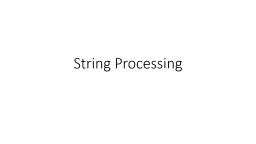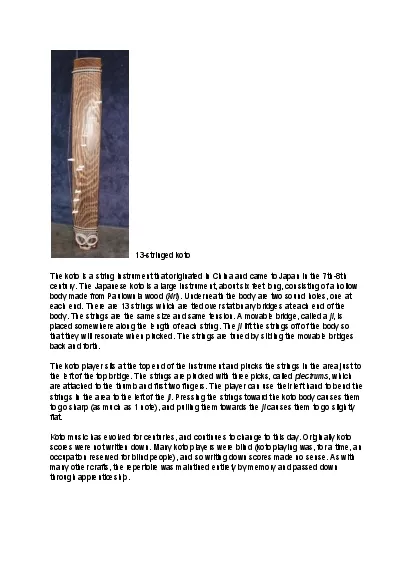PPT-Strings in Python Creating a string
Author : briana-ranney | Published Date : 2018-02-26
Creating a string There are many different ways to create a string The simplest way is to hard code it into your program mystring Hello Remember individual characters
Presentation Embed Code
Download Presentation
Download Presentation The PPT/PDF document "Strings in Python Creating a string" is the property of its rightful owner. Permission is granted to download and print the materials on this website for personal, non-commercial use only, and to display it on your personal computer provided you do not modify the materials and that you retain all copyright notices contained in the materials. By downloading content from our website, you accept the terms of this agreement.
Strings in Python Creating a string: Transcript
Download Rules Of Document
"Strings in Python Creating a string"The content belongs to its owner. You may download and print it for personal use, without modification, and keep all copyright notices. By downloading, you agree to these terms.
Related Documents














